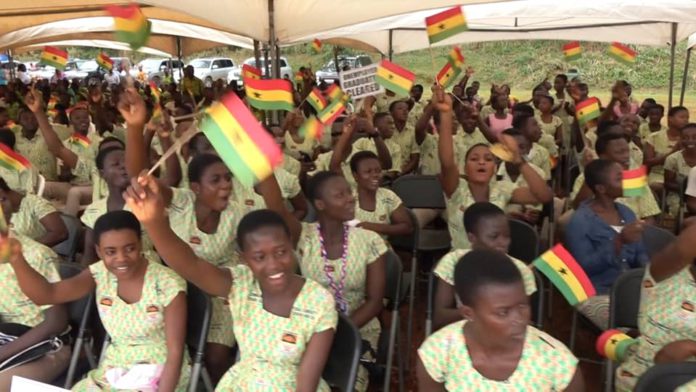The Center for Performance Tracking and Outcome Mapping (CePTOM) has called for a comprehensive national dialogue to re-examine the implementation and sustainability of the Free Senior High School (SHS) policy.
In a statement, CePTOM noted that the call aligns with President John Mahama’s campaign promise to convene a national consultative conference on education.
While acknowledging the eight-year milestone of the Free SHS program, which has provided free secondary education to over 2.5 million Ghanaian students, CePTOM emphasized that the policy has brought both successes and challenges.
“The first beneficiaries of the program have now completed their tertiary education, a testament to the initiative’s far-reaching impact. While the Free SHS program has significantly increased access to education, particularly for underserved populations, it has not been without its challenges,” the statement noted.
The Center highlighted success stories, such as improved literacy rates, gender parity in secondary education, and alignment with SDGs 4, 5, and 10, demonstrating the program’s transformative potential.
However, CePTOM raised concerns over issues such as overcrowding, resource constraints, unequal access, and the absence of a legislative framework. These issues, according to the Center, underscore the need for urgent reforms.
To address these challenges, CePTOM proposes a national dialogue to evaluate both the successes and challenges of the policy, identify sustainable funding models—including cost-sharing mechanisms—and address disparities between urban and rural schools to ensure equity.
The dialogue should also focus on enhancing infrastructure, improving teacher-student ratios, and increasing resource availability.
To ensure the policy’s sustainability, CePTOM has recommended the adoption of the Outcome Mapping Approach, a collaborative framework that engages all stakeholders—including students, parents, teachers, policymakers, development partners, and community leaders—as boundary partners. This approach will foster ownership and accountability while addressing the core principles of equity, effectiveness, and responsiveness.
CePTOM further called on all stakeholders, including government, civil society, educators, parents, political parties, and development partners, to unite in safeguarding Ghana’s future through sustainable education reforms.
“The Free SHS program has opened doors for many, but it is incumbent on us all to ensure that these doors lead to opportunities, empowerment, and a brighter future for every Ghanaian child,” the statement concluded.
ALSO READ:

